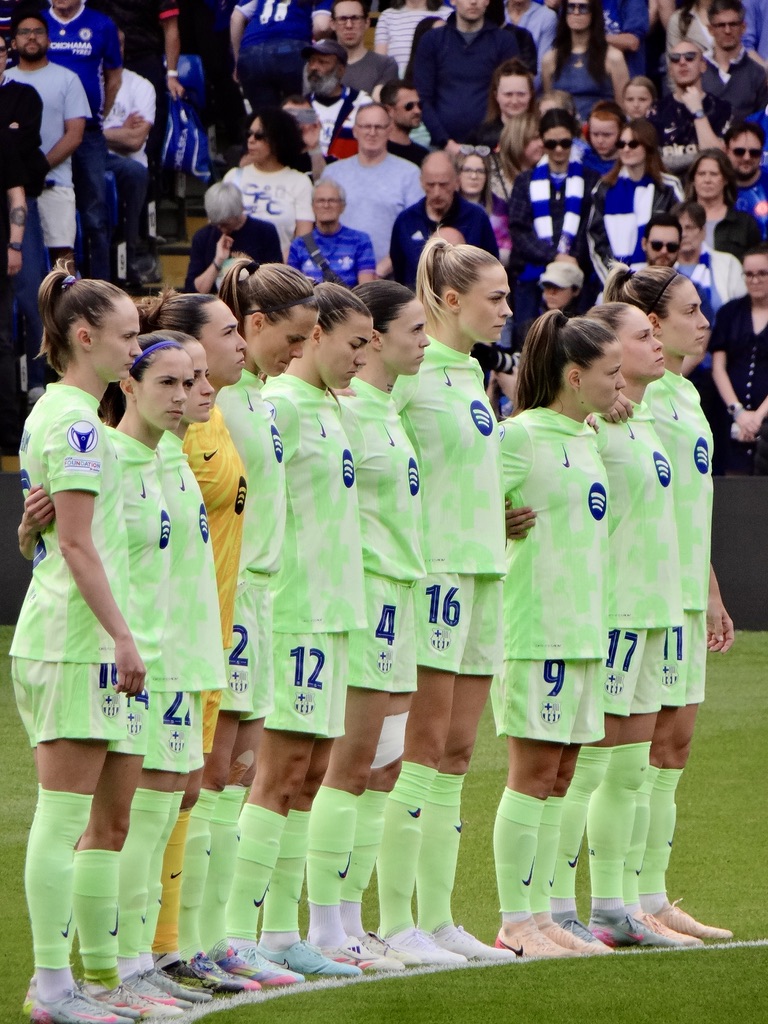DIRE STRAITS – End of an era for Barça?
Liga F Preview – is Barcelona’s dominance over? Dakota Johnson looks at a Spanish league in flux



When I first started thinking about previewing Liga F, I expected the gist of it to be ‘business as usual’, with Barcelona dominating, the Madrid teams putting in an early challenge, but being out of the picture by January. You get the picture. However, circumstances are changing rapidly, especially for Barcelona.
Following Euro 2025, you’d expect Spanish women’s football to be on a high, granted they didn’t win, but Spain were the best team in the competition and were unlucky against England (ed: this is very much Dakota’s personal opinion!)
Barcelona
Instead, it looks like the league and its biggest team could self-implode. Within the men’s game, it has long been common knowledge that Barcelona’s financial situation is precarious at best, and an absolute disaster at worst. Until now though, this hasn’t really filtered down to the women’s team as they operated on different finances – but since the merger of these finances, the women are now feeling the effects.
It’s estimated that they need to raise €1million to be able to balance the accounts, which means that with some key players having already left, it’s likely more will depart as wages become increasingly difficult to pay.
Moreover, many of Barcelona’s key players are on contracts that expire next year, meaning that if they don’t depart this summer or in January, in June 2026 they can leave for free. That would be a complete disaster for a club already in dire financial straits. Many academy players have left the club, which again is worrying for the long-term future of the club, if not an immediate issue.
Looking at the first team, Fridolina Rolfö has already departed to Man Utd, and Jana Fernández has headed off to London City Lionesses. Time will tell who else departs.
Perhaps the only saving grace for Barcelona will be that their biggest stars will expect to earn top wages if they depart, and there are only a handful of clubs in Europe that can offer this, many of whom already have stacked squads. If Barça can hold onto some of their stars this summer and get their finances in order by the next, the situation may yet be saved, but the outcome is not looking hopeful.
Madrid

Meanwhile in Madrid, both Real and Atletico will be looking to finally end years of Barça’s dominance. Last season, Real beat Barça in El Clasico for the first time, and while this was great for them, in hindsight it may have also been the first sign of what’s yet to come this season.
Real have signed Sara Dabritz from Lyon, bringing huge experience to the team. They’ve also brought in 26-year-old Danish international Sara Holmgaard from Everton, as well as two young Swedish players – Hanna Bennison and sought after centre-back 19-year-old Bella Anderson. While none of these may be huge names or fees (aside from Dabritz, though she may now be at the twilight of her career) they are clever, and show a long-term plan is in place – something Barça clearly lack. Plus Real have stars like Linda Caicedo and Caroline Weir, of course.
Real’s city rivals so far haven’t made any signings this summer, which now the league looks more open than ever may prove a huge mistake. Having finished 18 points behind Real and 24 points behind Barça last, without some rapid transfers it still seems unlikely that they could challenge for the title.
Bilbao
Athletic Club Bilbao have been solid in the league for a few seasons now and this could be the one where they make their major leap forward. With 5 championships they remain one of the most successful clubs in the country. Just like the men’s team, Athletic Club maintains the policy that all players must be native to or at least trained in the Basque Country, so almost all of their players are local.
One exception is 26-year-old German international Bibiane Schulze, who was born and raised in Germany and went on to play for them at international level. However, she does have Basque heritage, allowing her to play for Athletic Club. Rising to prominence in 2022-23, she is a key player for the team. Unfortunately, early in 2024-25 she suffered a dreaded ACL injury and would not feature again at all last season. Incredibly, she has recovered in time for this season and will be huge for the club this season – she may even be the key to getting them back into Europe.
Staying Up?
At the other end of the table, the situation at the top will not be that concerning to teams looking to stay in the league rather than win it. Last season it was ultimately Valencia and Real Betis that were relegated, despite both being affiliated with huge men’s teams in Spain. In some ways this may prove to be a positive sign for the league, while in other top European Leagues it becomes increasingly difficult for teams that aren’t connected to top level men’s teams, maybe in Spain this is not enough.
Last season things were tight down at the bottom. As the quality improves, staying up will become a bigger ask for some teams that have maintained their top-flight status for a while.
FC Levante Badalona have been flirting with the drop the last couple of seasons, and unfortunately it seems as though this may be the season where staying up becomes too much of an ask. Deportivo Abanca also had a difficult year, and had the longest losing run in the league with six last season.
Newcomers Alhama and Longono will be hoping for better luck – and may well have it – for the past couple of seasons it’s been more likely that established top level teams face relegation than recently promoted teams. Both teams will be looking to consolidate their position in Liga F, and with other teams around them having struggled for a couple of seasons, a few early points on the board could prove key.
TL;DR predictions:
Champions: Real Madrid
UWCL Places: Real, Barça, Athletic Club
Surprise package: Athletic Club
Relegated: Levante Badalona, Deportivo Abanca







